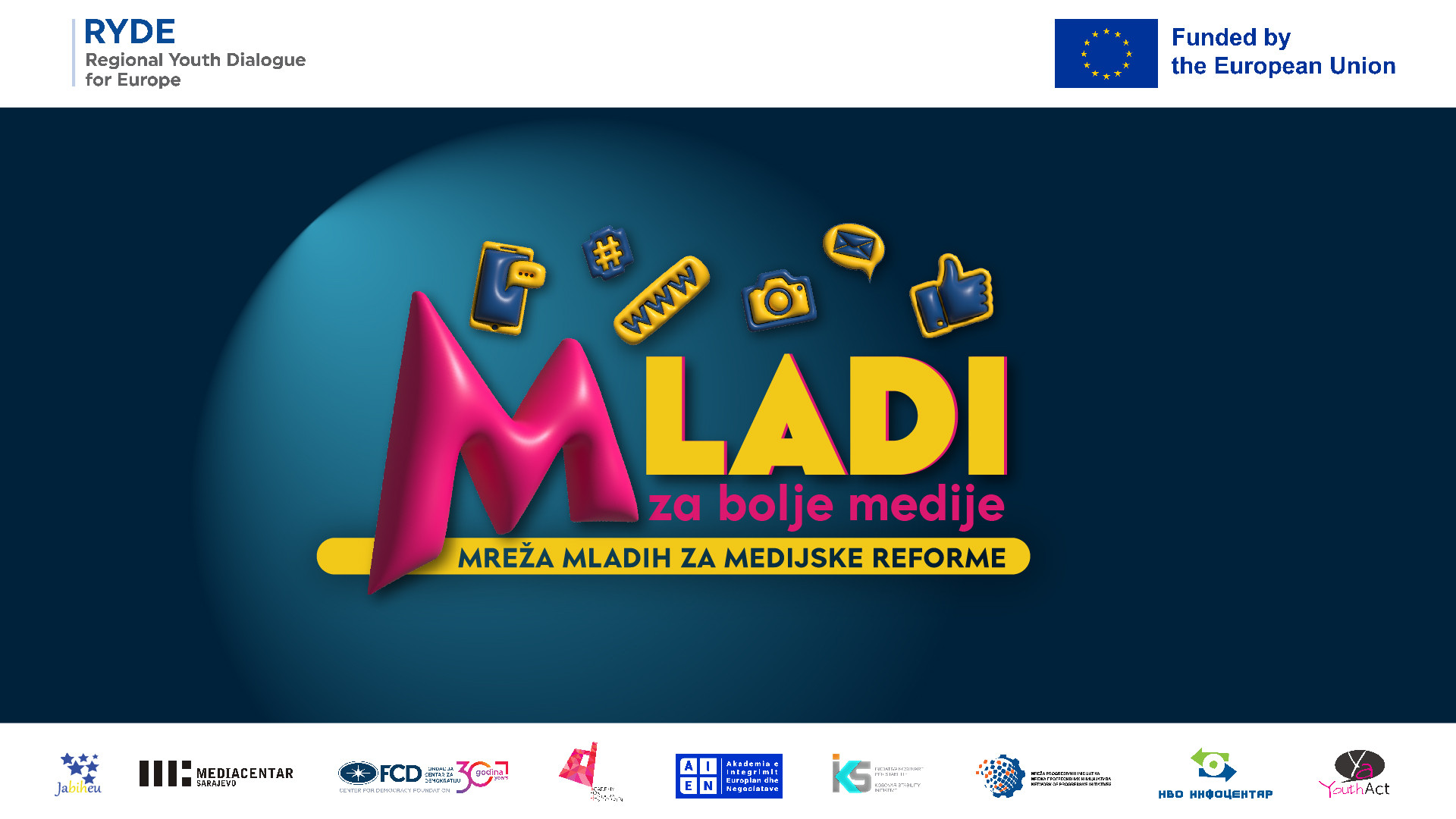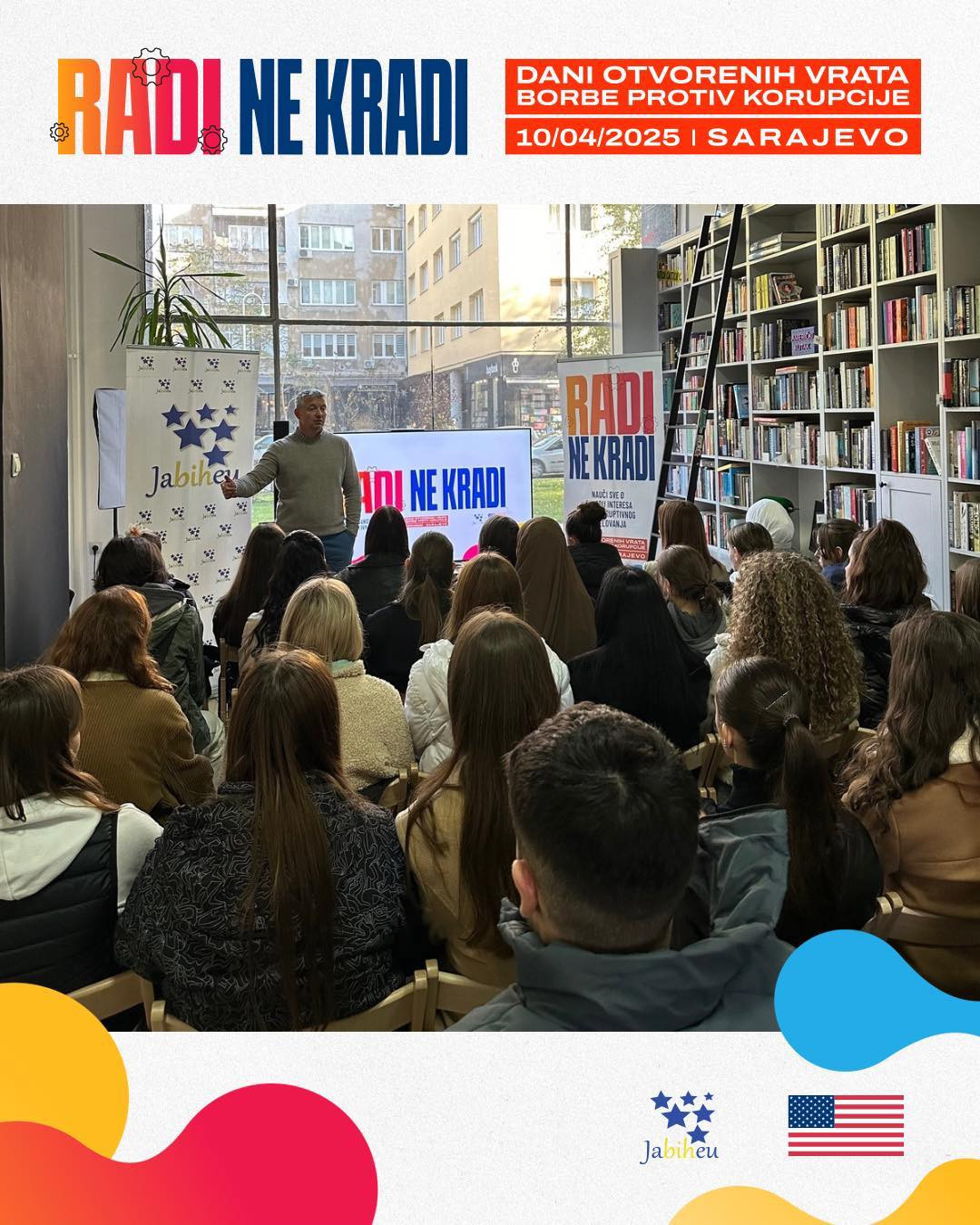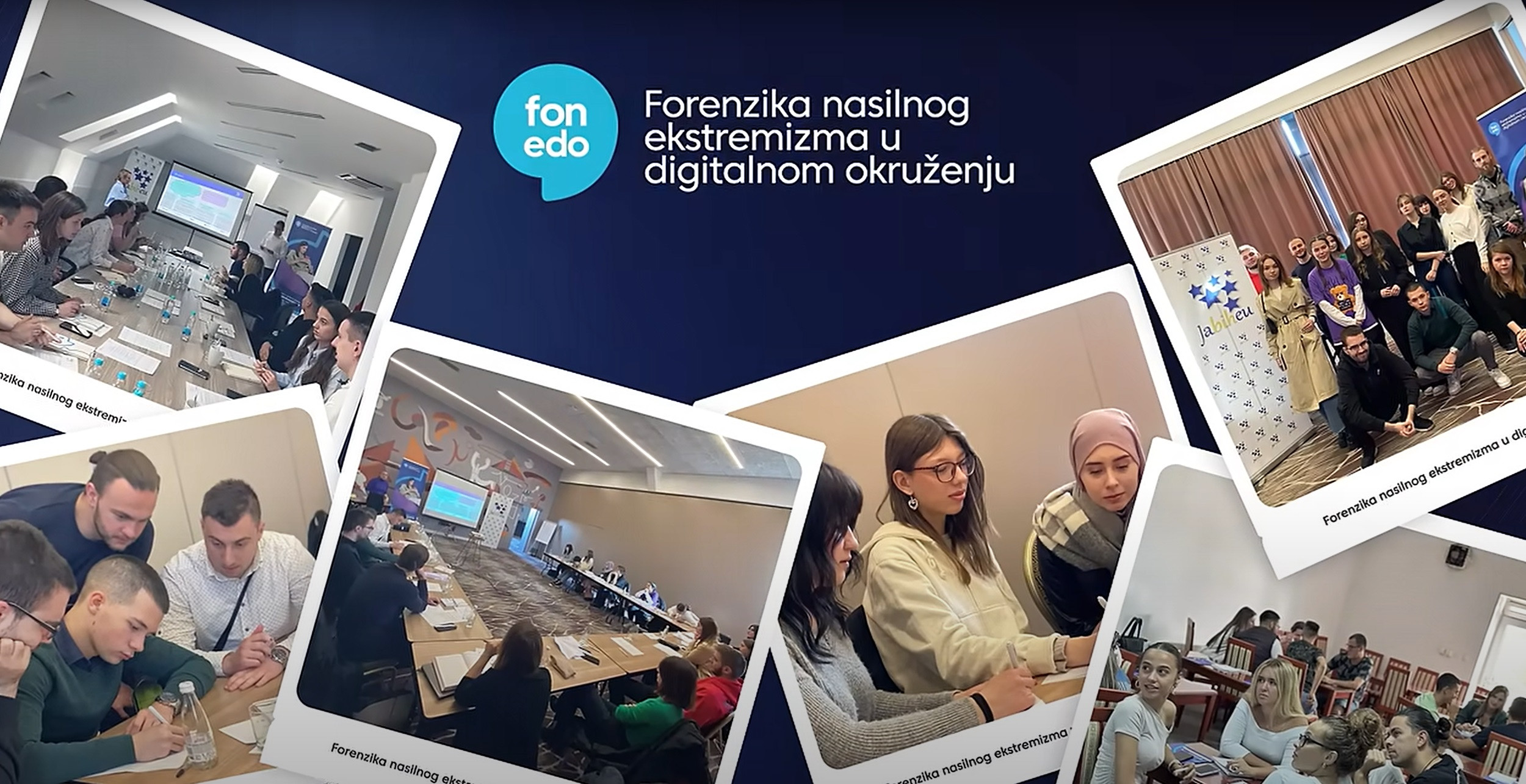
Involving young people in the fight against corruption will have a positive generational effect
With their invaluable energy, enthusiasm and passion young people in each society are important participants in the fight against corruption. Involving young people in the fight against corruption in Bosnia and Herzegovina will create an additional and valuable human resource and will give them the opportunity to fight for a better future.
Young people are often unaware that they suffer the consequences of corrupt practices. This often relates to a lack of accurate information and education about corruption and its consequences as well as the principles of good governance, which is the starting point for raising awareness about the harmful consequences of this phenomenon. This is why, in addition to the introduction of relevant curricula and programmes in educational institutions in Bosnia and Herzegovina, adequate anti-corruption activities and campaigns aimed at young people are necessary and should be led equally by experts and educated young leaders. These are just some of the recommendations contained in the document ‘Youth and Corruption’ by professor Dr Kanita Čizmić. Dr Čizmić recently gave a presentation, within the project ‘Bez štele i pošteno’, to the Office for Fighting Corruption and Quality Management of Sarajevo Canton, the Agency for Prevention of Corruption and Coordination of the Fight against Corruption, the Ministry of Security of Bosnia and Herzegovina and the Republika Srpska Health Insurance Fund.
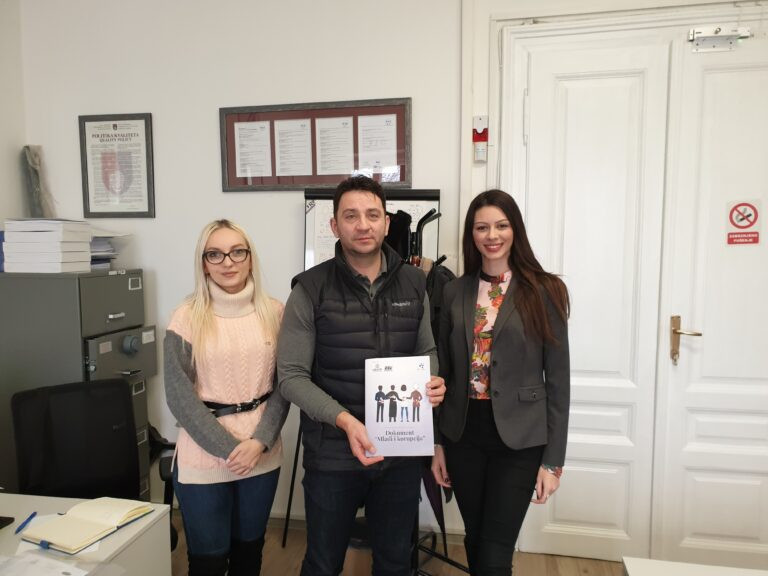
Representatives of organisation "Ja bih u EU" with Erduan Kafedžić, head of the Office for the Fight against Corruption and Quality Management
Representatives of these institutions supported the youth initiative and pointed out that young people must be involved in the prevention of and the fight against corruption. A representative of the Office for the Fighting Corruption and Quality Management of Canton Sarajevo emphasised that this is one of the biggest societal problems in this country. They pointed out in APIK, “We must not allow young people to lose control of the system due to the lack of final verdicts for corrupt practices.”
During the implementation of the project, youth teams cooperated and received answers to inquiries made to the Court of Bosnia and Herzegovina, the State Investigation and Protection Agency (SIPA), Transparency International, the state Prosecutor's Office, the Municipality of Mrkonjic Grad, the Municipality of Jajce and the Jajce police and the Medicines Agency and the Agency for Medical Devices of Bosnia and Herzegovina.
You can find the document at the link: Document "Youth and Corruption" The project ‘Bez štele i pošteno’ is implemented by the organisation ‘Ja bih u EU’ and is an integral part of the broader activity ‘Support to Citizens in the Fight against Corruption’, which is led by the Centre for Civil Initiatives (CCI) with the support of USAID.
The project directly involves 240 young people and 30 NGOs and has the support of a large number of media. The aim is to change the established pattern of corrupt behaviour, call for action and assistance, seek answers to both current and past publicly known unresolved cases of corruption, bribery, nepotism and abuse within education, public procurement, justice, health and the pharmaceutical industry.
Messages on social networks have reached a huge number of citizens and young people and this has helped advocacy efforts aimed at the competent institutions to finally solve cases of corruption and reminds the public about unresolved cases such as ‘Pero’, ‘the Respirators’, ‘Pandora’ and ‘GSK’ and call for active civic action in various areas and in specific cases of corruption. After successfully completing the processing of cases, production and campaigns, the best ‘advocates’ were selected at the finals of the competition that was held in Sarajevo. In addition to the teams, representatives of the competent institutions and the media also attended the competition.
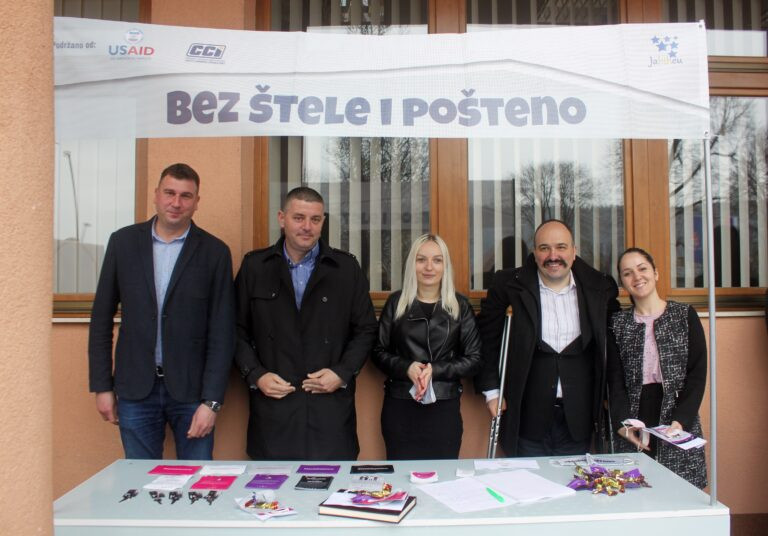
Representatives of the organisation "Ja bih u EU" with the mayor of Mrkonjić Grad, Dragan Vođević
The campaign Bez štele i pošteno has reached an extremely large number of citizens through social media and guerilla events that took place in Mrkonjić Grad, Jajce and Sarajevo. The young people showed personal courage and a willingness to work on cases of corruption. This confirms the findings of the online survey on social profiles conducted by Ja bih u EU that found that 91 per cent of young people believe that they can and should get involved in combating corruption. Lamija Lešo on behalf of #TimBombonjera stated, “I want young people to be considered valuable and capable when we fight for our future and not lazy and uneducated when we leave the country, precisely because we are not listened to and removed from the public when we talk about such topics as corruption.”
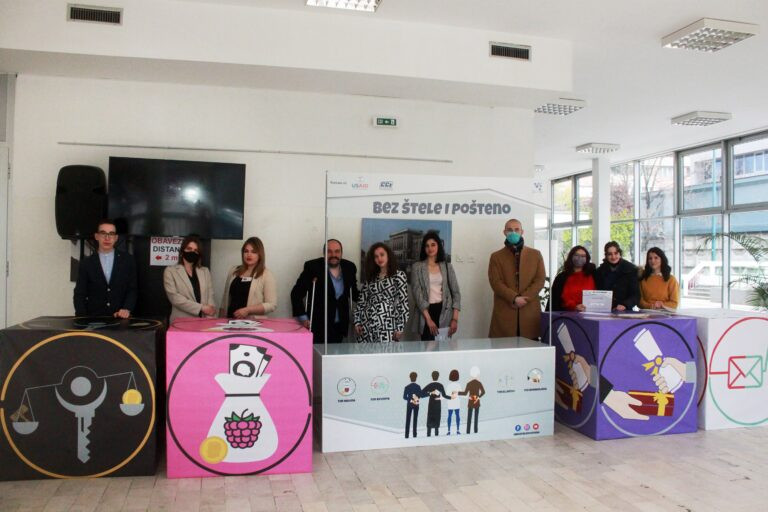
Participants and coordinators of the project 'Bez štele i pošteno'
One of the most important results of the project Bez štele i pošteno is the signing of a Memorandum on Cooperation by Ja bih u EU and 30 civil society organisations from all over Bosnia and Herzegovina whereby they agreed to act to prevent corruption and to promote the proactive role of the NGO sector in strengthening society's resistance to corruption. The results will be available on the digital platform ‘Bez štele I pošteno’(https://bezsteleiposteno.jabiheu.ba/).
All activities as well as the document ‘Youth and Corruption’ were done with the aim of improving the level of knowledge of young people about the harmful consequences of corruption, to reduce tolerance of corrupt behaviour and to strengthen the rule of law and citizen trust in institutions. Involving young people in the fight against corruption brings new and fresh ideas and this can be a good basis for the reform of the anti-corruption mechanisms. Combining the energy and enthusiasm of young people with the professional skills and experience of older persons will certainly increase and enhance the effect of the fight against corruption. Involving young people in the anti-corruption mechanism in Bosnia and Herzegovina will certainly have a positive generational effect.
 BS
BS
 EN
EN

